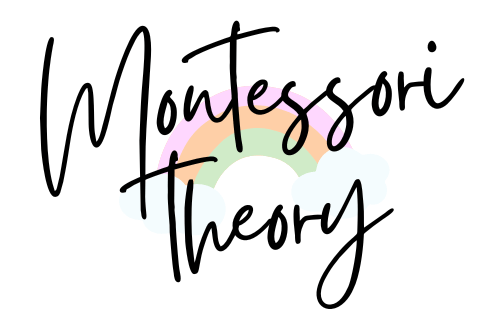In the broad and dynamic world of educational methodologies, the Montessori method stands out for its ability to ignite widespread controversy and debate. Praised by supporters as a transformative approach that nurtures independence, creativity, and a love for learning, Montessori education has made a significant mark worldwide. However, beneath its celebrated status, a growing number of critics challenge its efficacy, questioning if this method truly represents a significant advancement in education or if it’s merely riding on exaggerated acclaim. This article probes the contentious discussion surrounding Montessori education, aiming to provoke a thorough analysis of its relevance in today’s rapidly changing society. By examining Montessori’s foundational principles against the demands of current educational needs, it invites readers to consider: Is Montessori education at the forefront of pedagogical innovation, or is it merely enveloped in unwarranted hype, offering no real benefits to its followers?
Montessori Walks the Line Between Revolutionary Leap and Outdated Model
The essence of Montessori education is founded on a philosophy that champions the idea of children learning in an environment where they can freely explore and learn at their pace. Stemming from the early 20th-century insights of Maria Montessori, this methodology promotes child-led learning, mixed-age classrooms, and a curriculum focused on fostering independence rather than memorization. The Montessori method is often heralded as a beacon of progress, with the promise of shaping students into self-driven, inquisitive learners ready to tackle real-world challenges.
Yet, when examining this educational model more closely, significant questions emerge regarding its current applicability and effectiveness. The context in which our children are growing up today is vastly different from the era of Montessori’s inception. In a society characterized by swift technological progress, global interconnectivity, and accelerating life rhythms, the Montessori principle of self-guided exploration without conventional assessments might appear outdated or even detrimental. Critics contend that avoiding structured learning formats and standardized evaluations may not adequately prepare students for the realities of a competitive, tech-centric world.
Additionally, the Montessori approach’s focus on individual learning paths, although commendable for its intention to address each child’s unique development pace and interests, might neglect the necessity of direct instruction in vital subjects such as mathematics and science. By not prioritizing these disciplines or by treating them with a too lenient approach, Montessori education could potentially place its students at a disadvantage relative to their counterparts in more traditional educational frameworks.
This clash between Montessori’s philosophical ideals and the expectations of the modern era encapsulates a debate filled with fervor and division. Is the Montessori method an outdated relic, ill-fitted for the 21st century, or does its emphasis on independence, creativity, and self-discovery serve as an essential counterbalance to the pressures and uniformity often observed in standard education systems? As we further examine the Montessori method’s attributes and assertions, readers are encouraged to reflect on whether what was once deemed revolutionary might now be approaching a point of obsolescence.
Is Montessori an Enlightened Investment or Mere Status Symbol?
The discussion surrounding Montessori education often skirts around a critical aspect—the cost. Montessori schools, particularly in the United States, are notorious for their hefty tuition fees, positioning them as an educational luxury accessible only to the affluent. This financial barrier raises the question: Is the Montessori premium truly an investment in a superior educational foundation, or is it merely a status symbol, a badge of privilege worn by those who can afford it? The debate is not merely about dollars and cents but touches on the deeper issue of educational equity and the true value derived from such an investment.
Critics argue that the high cost of Montessori education does not necessarily guarantee a correspondingly high return on investment. They point to research suggesting that long-term outcomes for Montessori students, in terms of academic achievement and social skills, may not significantly outperform those of their traditionally schooled peers. This leads to the provocative suggestion that the Montessori “premium” may be more about purchasing social capital—a way for parents to signal their status and commitment to progressive educational values—than about securing an unmatched educational advantage for their children.
However, research by Culclasure, B., Fleming, D. J., & Riga, G. (2018) challenges this view by examining the impact of Montessori public elementary schools on student social, emotional, and academic outcomes. Their findings suggest that Montessori education can indeed provide distinct advantages in these areas, thereby offering a counterargument to the notion that Montessori’s benefits are merely superficial. These results underscore the importance of considering the broad spectrum of outcomes that Montessori education can foster, beyond just academic scores, including enhanced social and emotional development.
Proponents, on the other hand, argue that the benefits of Montessori education—such as fostering independence, creativity, and a love for learning—cannot be measured in test scores alone. They contend that these intangible qualities are invaluable in preparing students for success in life, far outweighing the initial financial outlay. However, this perspective does not fully address the issue of accessibility, leaving open the question of whether Montessori’s benefits are unfairly reserved for a privileged few. The study by Culclasure and colleagues highlights that when Montessori education is made accessible through public funding, it can indeed offer substantial benefits to a broader demographic, suggesting that the key to unlocking its full potential lies in expanding access rather than limiting it to those who can afford private tuition fees.
Does Montessori Really Outshine Traditional Education?
To fully assess Montessori education’s value, analyzing its outcomes compared to those of traditional educational methods is essential. The conversation frequently revolves around areas such as academic achievement, social development, and preparedness for life beyond the classroom. The evidence, however, paints a nuanced picture, with research and firsthand stories supporting both perspectives.
A pivotal study by Lillard, A. S., & Else-Quest, N. (2006) in Science reveals that children attending a public inner-city Montessori school exhibited higher levels of academic achievement and social skills than their peers in traditional schools. This research underscores Montessori’s potential in fostering not only social and emotional development but also in providing a solid academic foundation. Montessori students often display a remarkable degree of independence, empathy, and social responsibility, traits that are increasingly recognized as vital for success in a rapidly evolving society.
However, the landscape of comparative outcomes is complex. While some studies, including the longitudinal research by Dohrmann, K. R., Nishida, T. K., Gartner, A., Lipsky, D. K., & Grimm, K. J. (2007), demonstrate that Montessori students can outperform their traditionally schooled counterparts, especially in high school, others indicate minimal differences. These findings contribute to the debate over Montessori’s effectiveness, suggesting that any academic advantages may diminish over time or be influenced by factors outside the educational method itself.
The ambiguity surrounding these outcomes fuels critics’ claims that Montessori’s alleged superiority might be more of an illusion than a fact. Critics argue that the successes commonly attributed to Montessori education may stem from socio-economic advantages rather than the educational approach itself. Montessori institutions often benefit from smaller class sizes, highly involved parents, and students from more affluent backgrounds—all factors known to enhance educational results, irrespective of the pedagogical approach.
This critique prompts significant reflection on Montessori education’s scalability and general applicability. If its effectiveness is reliant on advantageous conditions not widely accessible, the method’s claim to superiority comes into question. Perhaps Montessori represents not a universally better choice but an alternative route that offers varying results depending on the context and how it is applied.
This debate underscores that Montessori education, like any instructional strategy, should not be judged as universally superior or inferior. Its effectiveness and value are significantly shaped by individual learner needs, parental engagement, and the broader socio-economic environment. Rather than declaring one educational approach the definitive winner, the objective should be to acknowledge and utilize the strengths inherent in each method to cater to the diverse learning requirements of all students.
Are Essential Learning Aspects Overlooked in Montessori Education?
At the heart of the Montessori debate is its approach to learning and curriculum structure—or perceived lack thereof. Montessori education is celebrated for its focus on independence, creativity, and self-directed learning, principles that supposedly prepare students to navigate the complexities of the modern world. However, this laissez-faire approach has drawn criticism for potentially neglecting rigorous academic standards and failing to instill essential skills in students, particularly in critical areas like math and science.
Critics suggest that the Montessori model’s emphasis on child-led exploration can lead to significant gaps in learning, especially when students choose to avoid subjects that are challenging or outside their immediate interest. This freedom, beneficial in fostering a love for learning, may inadvertently result in a lack of exposure to foundational concepts in STEM (Science, Technology, Engineering, and Mathematics), areas increasingly recognized as crucial for future success. The argument extends to suggest that Montessori students might be at a disadvantage when compared to their peers in more traditional settings, where a structured curriculum ensures comprehensive coverage of these subjects.
Moreover, the Montessori system’s reluctance to adopt standardized testing and traditional grading is seen by some as a disservice to students. While aiming to de-emphasize competition and stress, detractors claim it may leave students ill-prepared for the realities of higher education and the workforce, where performance metrics and assessments are unavoidable. The concern is that Montessori graduates might struggle in environments that demand adaptability to standardized testing and objective performance measures.
However, it’s crucial to consider the perspective of Montessori education supporters, who argue that its strengths lie in its ability to produce individuals who excel in critical thinking, problem-solving, and adaptability. They highlight the success stories of Montessori alumni who have thrived in diverse fields, leveraging their educational backgrounds to innovate and lead.
This debate brings to the forefront a fundamental question about the purpose of education: Is it to produce students who excel in traditional academic metrics, or is it to nurture individuals capable of thinking critically and adapting to an ever-changing world? The discussion about Montessori education opens up broader considerations about educational goals, the value of diverse learning environments, and the best ways to prepare students for the future.
The Final Verdict on Montessori Education’s Effectiveness
As this examination comes to an end, the debate surrounding Montessori education remains unresolved. With its emphasis on child-led learning, independence, and creativity, Montessori presents a compelling contrast to traditional educational models. Yet, the critiques it faces—regarding its relevance, effectiveness, and accessibility—underscore the challenge of creating an educational system that serves all students effectively.
The discussion encourages a reevaluation of our measures of educational success. Should success be defined solely by standardized test scores and academic achievements, or should greater emphasis be placed on the development of independent thought, creativity, and emotional intelligence? Montessori education prompts us to reconsider our approach to learning, questioning the conventional focus on structure and uniformity.
In encouraging readers to reflect on these issues, this article aims to foster a wider conversation about the direction of education. The goal is not to diminish or champion one method over another but to explore ways to integrate the strengths of various educational philosophies, ensuring a rich and diverse educational landscape for all learners.





